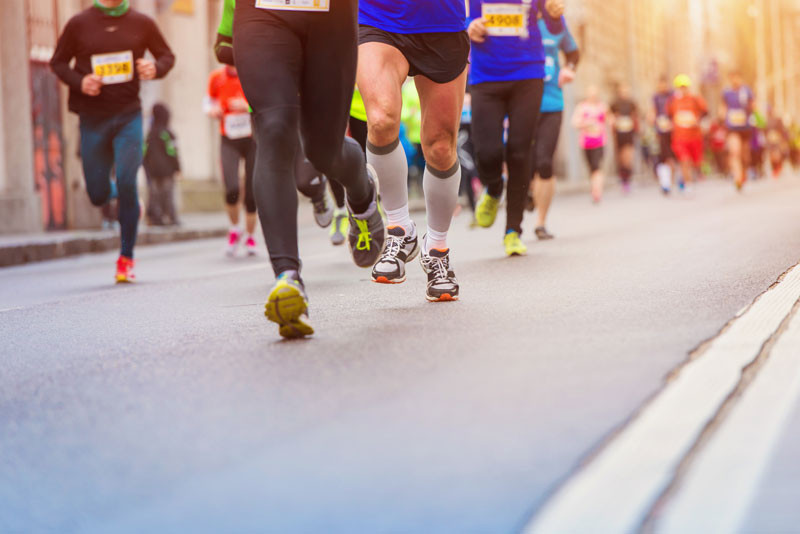A great dietary plan isn't just about what you eat, it's also about when you eat. We all know the drill about not eating too late into the evening, as a full stomach can disrupt sleep patterns and throw our metabolism out of kilter. Then there's the issue of timing our meals or snacks to optimize our workouts, whether it consists of cardio, weights, a combination of both, or Plan D. You don't have to be an elite athlete to reap the benefits of well-planned, well-devised pre-workout dietary regimens. Even if you're just the typical fitness enthusiast or weekend warrior, you should know that good nutrition can enhance your body's performance and then enhance post-workout recovery. Done right, your pre-exercise food and drink consumption will bolster performance while reducing your risk of damage to your muscles.
Timing Is Important
If you've ever trained for a marathon – or even a half-marathon or a 10K run – you've likely heard about the benefits of loading up on carbohydrates before a long training run or at least for the big event itself. Carbo loading, they call it. Consider it fuel not for the soul but for the get up and go. That does not mean that two hours before running 26.2 miles or swimming the English Channel that you gobble down a bowl of spaghetti and pasta followed by a deep-dish pizza chaser. You want to fuel your body, not smother it from the inside out. Per the National Institutes of Health (NIH), frequent eating – a little or moderate amount at a time – encompasses a practical strategy allowing athletes to increase energy intake while concomitantly reducing the gastric discomfort of infrequent large meals. . . . the timing and frequency of (carbohydrate) intake at these various stages are crucial determinants for optimizing fuel availability to enhance exercise capacity. Does this mean eating on the run? Actually, yes. Some energy bars are designed to be consumed during a long, strenuous workout – serious runners regularly ingest them during runs – as a readymade food source to keep the body's fuel lines properly supplied from start to finish. As for food served at the table and eaten off a plate, healthline.com recommends consuming a complete meal that includes carbs, protein and fat two to three hours before exercising. But don't confuse phrasing such as full meal and fat as a green light to load up on junk food topped off by a couple of ice cream sandwiches. You want healthy foods that pack some carbs and protein and which digest easily, such as simple fruits and vegetables. Don't eat to get full; eat to get fuel. Keep in mind, too, that the closer it gets to your workout or big event, the lesser amount of anything you want to be consuming. The idea is to avoid stomach discomfort that comes later, about the time you are starting on your second bucket of sweat.Pre-Workout Eating Strategies
Here are a few other dietary tips to keep in mind when planning meals/snacks around workouts:- If you have several hours before your workout starts, some simple meal suggestions, per healthline.com: an egg omelet with whole-grain toast covered with avocado spread and a cup of fruit, or a lean protein accompanied by brown rice and roasted veggies.
- If your workout is less than two hours away, consider a protein smoothie that includes milk, protein powder, a banana and mixed berries, or a cup of oatmeal along with a sliced banana and sliced almonds that can go right onto the cereal. These, too, are suggested per healthline.com.
- Generally speaking, per fitnessmagazine.com, while you do want to emphasize carbs prior to working out, you want a mix of simple and complex carbs so that the release of energy will be slow and steady throughout the workout. Consider it maximizing your fuel efficiency.
- Another suggested workout-fuel combination is Greek yogurt and trail mix (but just the nut and dried fruit variety – no chocolate pieces, OK?) – the yogurt to help coat your stomach and the trail mix to provide energy boost while it's also helping to regulate insulin levels.
- Working out on an empty stomach gets mixed reviews, per nytimes.com. A lack of food in the body can make your feel lighter and remove or at least reduce the chances for the discomfort that can come when a body is in full-workout mode the same time it is in full-digestion mode. However, going full bore for an extended period on an empty stomach can also mean a drop in blood sugar and a rapidly depleting fuel supply with most of the workout or race still in front of you. This is where running out of gas starts to have significant meaning.

